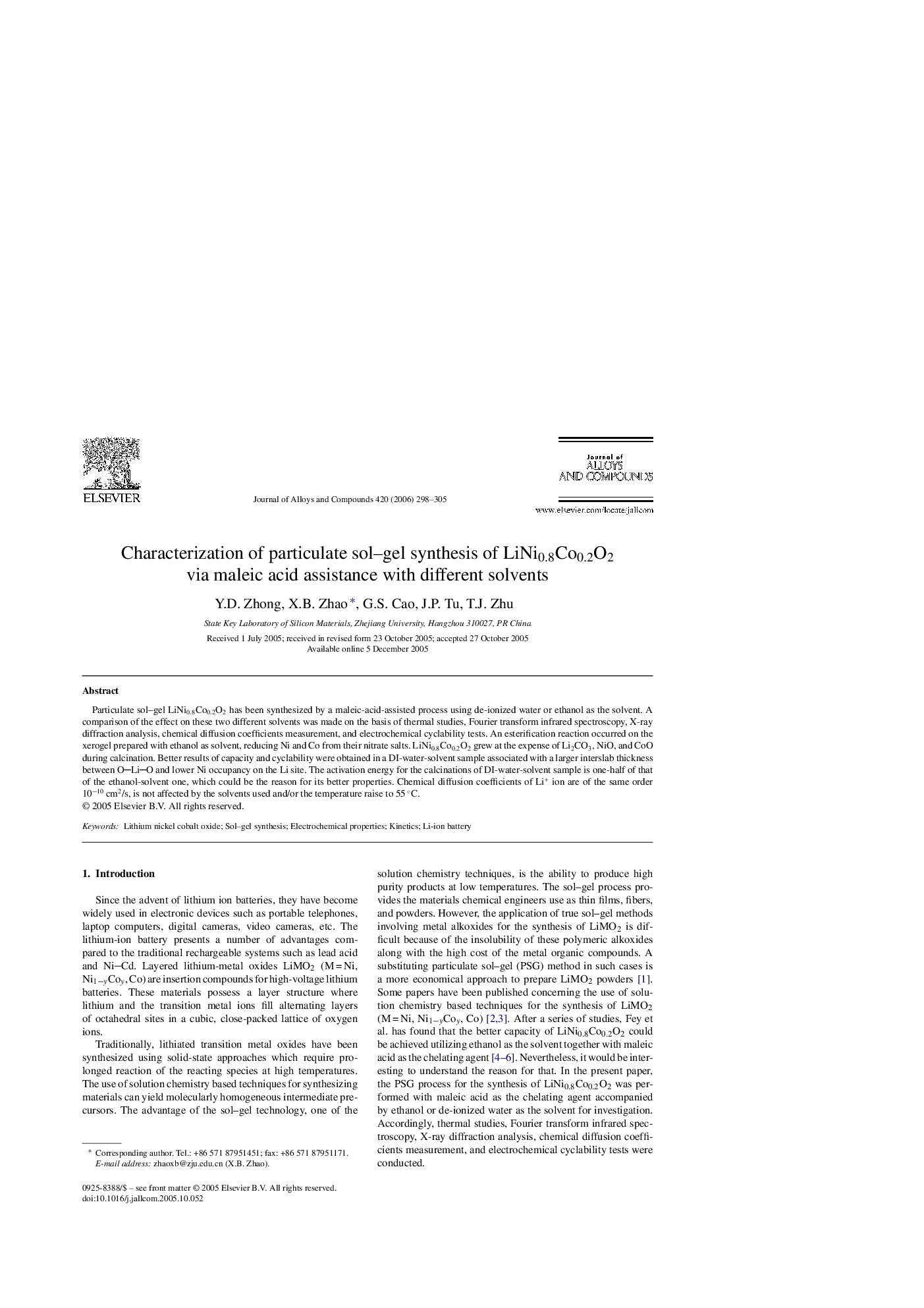| Article ID | Journal | Published Year | Pages | File Type |
|---|---|---|---|---|
| 1627260 | Journal of Alloys and Compounds | 2006 | 8 Pages |
Abstract
Particulate sol-gel LiNi0.8Co0.2O2 has been synthesized by a maleic-acid-assisted process using de-ionized water or ethanol as the solvent. A comparison of the effect on these two different solvents was made on the basis of thermal studies, Fourier transform infrared spectroscopy, X-ray diffraction analysis, chemical diffusion coefficients measurement, and electrochemical cyclability tests. An esterification reaction occurred on the xerogel prepared with ethanol as solvent, reducing Ni and Co from their nitrate salts. LiNi0.8Co0.2O2 grew at the expense of Li2CO3, NiO, and CoO during calcination. Better results of capacity and cyclability were obtained in a DI-water-solvent sample associated with a larger interslab thickness between OLiO and lower Ni occupancy on the Li site. The activation energy for the calcinations of DI-water-solvent sample is one-half of that of the ethanol-solvent one, which could be the reason for its better properties. Chemical diffusion coefficients of Li+ ion are of the same order 10â10 cm2/s, is not affected by the solvents used and/or the temperature raise to 55 °C.
Keywords
Related Topics
Physical Sciences and Engineering
Materials Science
Metals and Alloys
Authors
Y.D. Zhong, X.B. Zhao, G.S. Cao, J.P. Tu, T.J. Zhu,
